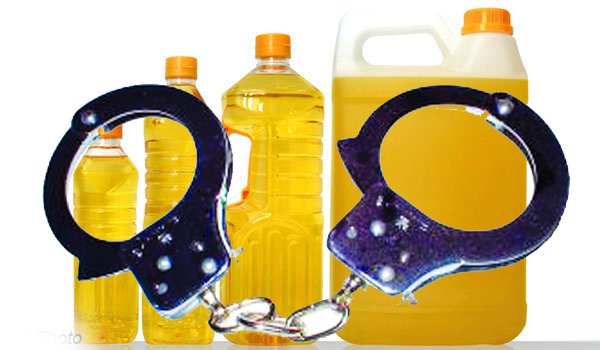The customs have seized the consignment, which has a fatty acid content of 23 per cent, which is far above the level fit for human consumption.
The unrefined palm oil imported to the country should contain a maximum of 5 pc of fatty acids, which should be brought down to 0.1 pc by refining for release to the local market.
The Sri Lanka Standard Institution has not received samples of this palm oil consignment, as the customs had been told an acid was being imported.
The customs revenue thus lost is Rs. 755 million.
The customs has made inquiries from the Malaysian Palm Oil Board, which has responded by saying they have been told that palm fatty acid for use in industries was being imported to Sri Lanka.
The importer has tried to influence customs officials to get the consignment cleared.
Meanwhile, a lawyer, Nagananda Kodituwakku, has filed a petition in the court of appeal, seeking an order to destroy this fatty palm oil consignment publicly.
The importer does not release palm oil to the market under a brand, but sends it to the wholesale market.
Spread across the country, the importer has been carrying on with this racket since 2012, ‘lakbima’ newspaper reports.






